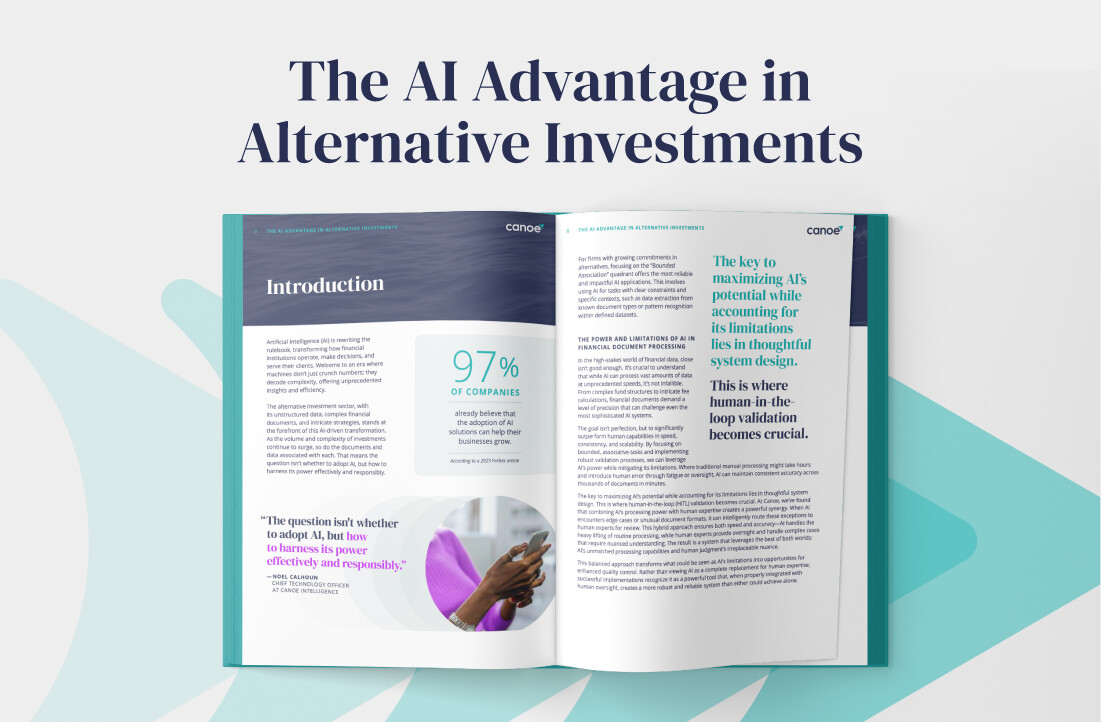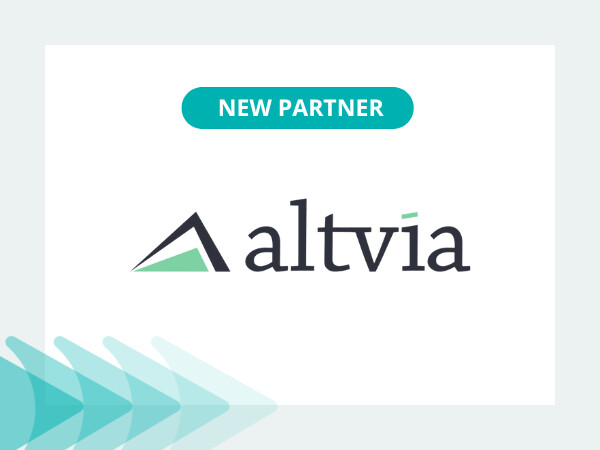How Insurance Giants Can Achieve Efficiency in Alternative Investments: A Blueprint for Automation
In the complex alts landscape, insurance companies face challenges when dealing with sourcing diverse documents from various portals—particularly notices and statements from Private Equity, Real Estate, and Hedge Funds. Additionally, accessing data locked in PDF documents typically requires significant manual processing, validation and review. As insurance firms grapple with these complexities and their increasing allocations to alts, the traditional approach of solving operational challenges with more personnel proves insufficient. This article sheds light on the key challenges insurance companies face and how the collaboration between Canoe and Exchangelodge addresses these issues for large insurance companies, streamlining operations and driving efficiency through automation.
5 Key Challenges Faced by Insurance Companies Managing Alternative Investments:
The challenges faced by insurance companies in managing their increasing allocations of alternative investments can be vast, including diverse data sources, manual processing bottlenecks, regulatory intricacies, operational inefficiencies, and resource drain.
- Diverse Data Sources and Formats:
Alternative investments often involve a multitude of fund managers, each with its own reporting practices and document formats. Insurance companies must contend with a lack of standardization, leading to a diverse array of notices and statements. The challenge lies in bringing together these varied data sources, making data extraction a complex and time-consuming task.
- Manual Data Processing:
Unlike traditional investment data, alternative investment data is frequently unstructured and requires manual processing. Insurance companies may find themselves grappling with the need for manual logins, downloads, and data entry. This manual effort not only consumes valuable resources but also introduces the risk of errors, leading to potential inaccuracies in reporting.
- Regulatory Compliance and Accounting Standards:
Insurance companies operate under strict regulatory frameworks and must adhere to accounting standards such as Generally Accepted Accounting Principles (GAAP) and Statutory Accounting Principles (STAT). Managing alternative investments introduces an added layer of complexity in aligning these diverse investments with regulatory requirements and accounting standards. Striking this balance requires meticulous attention to detail to ensure compliance.
- Operational Bottlenecks:
The sheer volume and complexity of alternative investment documents and data creates operational bottlenecks within insurance companies. Manual processes contribute to slower workflows, hindering the timely processing of notices and statements. This operational sluggishness can impact the ability to respond swiftly to market changes and capitalize on emerging opportunities in the alternative investment landscape. By automating data validations and establishing governance over data workflows, bottlenecks can be eliminated.
- Resource Drain and Inefficiency:
The manual nature of data extraction and processing alternative investments can lead to a significant drain on resources. Insurance asset managers may find themselves allocating valuable time and personnel to repetitive tasks, diverting focus from strategic decision-making. This resource drain not only impacts operational efficiency but also limits the capacity for insurance companies to scale their alternative investment portfolios. Through a transition from manual data review to exception based oversight, resources can be reallocated to higher value tasks.
Addressing these challenges requires a strategic approach that embraces modern technology and collaborative partnerships, offering insurance companies the opportunity to enhance efficiency, accuracy, and overall effectiveness in navigating the complexities of the alternative investment landscape.
The Path to Efficiency: Canoe x Exchangelodge Collaboration:
With these challenges in mind, insurance companies are recognizing a growing need for automation as the path to optimize operations and enhance resource efficiency. Additionally, by automating data review and validation, overall data quality is vastly improved and trusted data is seamlessly integrated across the tech ecosystem.
The end goal is to significantly reduce the time required for processing alternative investments across the entire insurance portfolio, and some of the largest insurance companies in the world have turned to the combination of Canoe and Exchangelodge to achieve these goals.
The combined solution streamlines the entire alts document to data process and takes into account the complexity of data sources and accounting standards. This partnership encompasses the collection, digitization, validation, transformation, and integration of alternative investment data across the insurance ecosystem. Validated and approved data flows seamlessly to vendor and proprietary downstream platforms, including accounting, portfolio analysis, risk management systems, and reporting tools.
As the alternative investment landscape evolves, Canoe and Exchangelodge stand ready to guide insurance companies and all types of institutional investors through their transformation.
Ready to modernize your alternative investment management
Connect with Canoe and Exchangelodge to explore tailored solutions, streamline operations, and pave the way for a future of efficiency and success.




